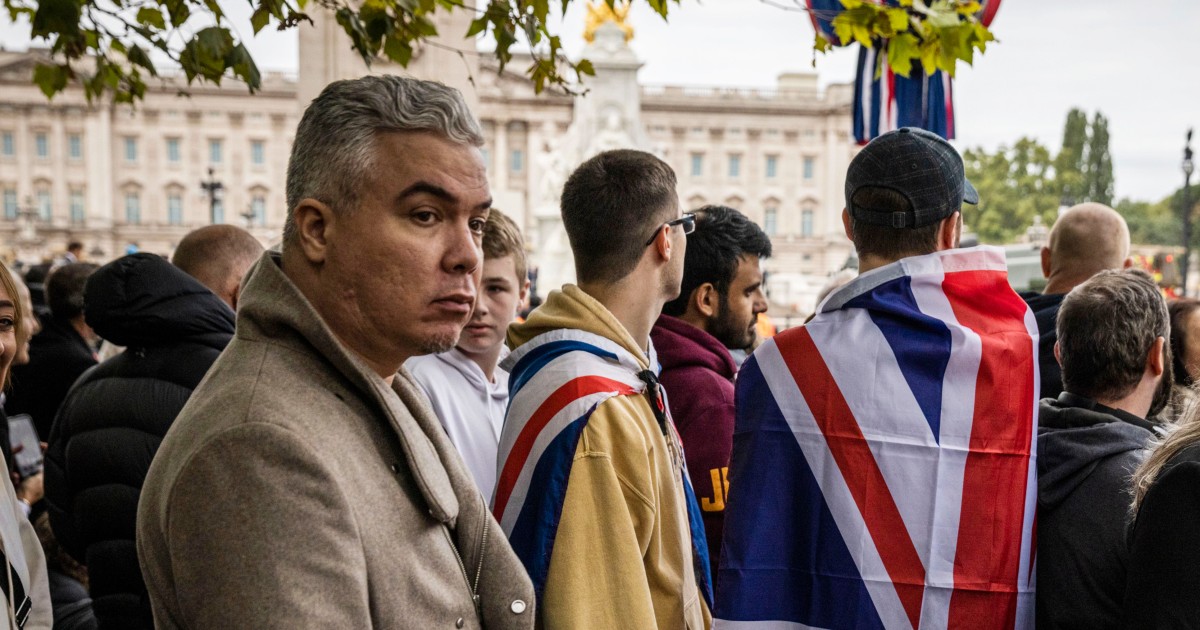
The queen’s ubiquitous celebrity helped Britain to punch above its shrinking economic and political weight on the global stage.
Outside Westminster Abbey on Monday that legacy was palpable.
“It makes you so proud to be British,” said Lorna Deller, 28, a dental nurse from Norfolk, east of London. Seeing the queen lying in state and attending the funeral were “the two most impactful moments of our lives,” added her mom, Judy Bunning, 54, a beauty therapist. “Whenever I think about it I just start crying.”
It’s not just Brits who said their terrestrial worries had been temporarily eclipsed by the emotion of the queen’s death.
Angel Lee, 51, moved to Britain from Hong Kong two years ago, as the Chinese government tightened its grip on the former British colony. She was one of the 250,000 people who lined up for hours to see the queen lying in state last week, according to U.K. Culture Secretary Michelle Donelan. On Monday, when Lee saw the coffin being taken through the streets, she cried so much that she found it hard to speak.
“To me she represented freedom of expression,” said Lee, who arrived Sunday — and slept on the sidewalk — to save a spot with her son, Abraham Nip, 13. “Even though the queen was the head of state, she didn’t act as though she was above anyone else.”
Not everyone agrees with that view, of course, with the queen’s death prompting many across the Commonwealth and beyond to call out the royals’ role in Britain’s history of violent colonialism. Some inside the country itself used the event to call for reforms or even replacement of the unelected head of state.
King Charles III’s reign may intensify those voices, and it’s far from clear he will have anything like the same domestic emotional appeal or international clout as his mother.
Source: | This article originally belongs to Nbcnews.com









